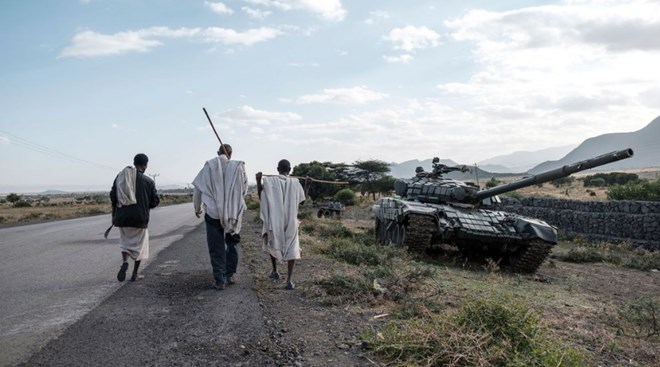Ethiopia’s Future Hinges on a Leader Who’s Brought Peace — and Conflict




Source: Bloomberg, Friday December 18, 2020

An abandoned tank belonging to Tigrayan forces, south of the town of Mehoni, Ethiopia, on Dec. 11.
Addressing federal troops last weekend in the captured capital of Ethiopia’s Tigray province, Prime Minister Abiy Ahmed declared victory and asked locals to turn in their fugitive leaders so he could focus on “development.” Not everyone’s convinced the bloodshed’s over.
What comes next for Africa’s second-most populous nation will depend largely on who Ethiopia’s leader really is: a reformer who won a Nobel Peace Prize for ending the conflict with neighboring Eritrea, or another strongman-in-the-making.
More than two-and-a-half years after the ex-army intelligence officer rode a wave of pro-democracy protests to power, Abiy’s ambitions to raise Ethiopia’s regional profile and strengthen its economy with his push for national “synergy” have rubbed up against the conflicting interests of its 80 ethnic groups and multiple religions.
By reining in regional disputes and opening borders, he could underpin Ethiopia’s fast-growing, if fragile, economy, which expanded by just over 10% per year from 2005 to 2019. That may have a stabilizing effect across a turbulent neighborhood that includes Somalia and Sudan.
A descent into chaos could, equally, fuel further instability in the Horn of Africa.
“Maintain your unity and the unity of the people,” Abiy told troops assembled in Mekelle Sunday, commending them for fighting together despite ethnic differences.

